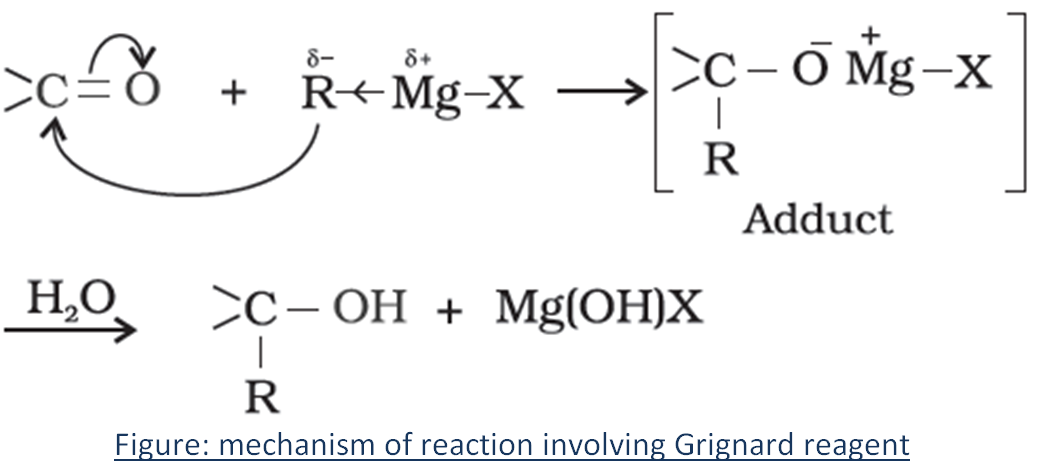According to the JEE syllabus, chemistry is branched into three categories: Inorganic Chemistry, Organic Chemistry and Physical Chemistry. Of all these categories, Organic Chemistry is a topic that requires a thorough understanding of concepts to reach the solution of a problem. The Grignard reagent is one of the famous reagents used in various reactions in Organic Chemistry.
Important Question For Grignard Reagent
Some FAQs related to Grignard reagent are discussed below:
Question: What is Grignard reagent?
Answer: Grignard Reagent is an organometallic compound discovered by VictorGrignard in 1900 upon the reaction of haloalkanes with magnesium metal in dry ether. The carbon-magnesium bond in the Grignard reagent is covalent but highly polar, as carbon pulls the electrons from electropositive magnesium. The general formula is given by RMgX, where R is an alkyl group and X is the halogen group attached.
Questions: What is the general mechanism for the reactions involving Grignard reagent?
Answer: JEE syllabus involves a wide range of reactions involving Grignard reagent. Grignard reagents are very reactive in nature. They react with any source of a proton to give hydrocarbons. For example:
RMgX + H2O ? RH + Mg(OH)X
The Grignard reagent is mainly used in nucleophilic addition reactions. For example, the preparation of aldehyde and ketones from acyl chlorides. One of the popular reactions of the Grignard reagent involves the synthesis of alcohols from aldehydes and ketones. A general Grignard reagent mechanism for the synthesis of alcohols is underlined below:
Questions: Which reference books can one follow for general organic chemistry?
Answer: While covering General Organic Chemistry for JEE, one must go through the NCERT class 12th chemistry textbook part-2. A brisk walk through this book not only gives you a sound idea of the various topics you need to cover according to the JEE syllabus but also develops the fundamentals regarding the topic. Apart from this, you can follow a reference book to understand the mechanisms of the reactions not given in the NCERT textbook. Some authentic books for understanding the mechanism of organic reactions include Organic Chemistry by Solomons and Fryhle and Organic Chemistry by Morrison and Boyd.
For further details related to the Grignard reagent for JEE chemistry, get in touch with our mentors here at BYJU’S.
Grignard Reagent Question and Solutions


Comments